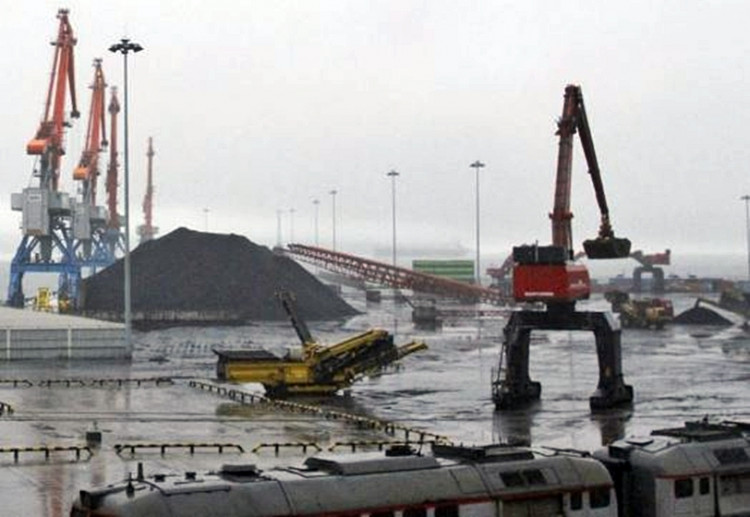North Korea's economy is in even bigger trouble than the world realizes. The communist state's GDP plummeted by 3.5 percent in 2017, said the Bank of Korea (BOK), South Korea's central bank.
The steep plunge in North Korea's GDP is the largest in two decades and can be attributed to a tightening of international sanctions imposed in 2017, said the BOK. The last time BOK observed a larger decline in the North Korean economy was in 1997 when GDP plunged by 6.7 percent due to a devastating famine that killed millions of North Korean citizens.
"The negative growth is attributable to a drop in its mining output and a retreat in its heavy and chemical industries, as the United Nations imposed tougher sanctions over its nuclear and missile activities," said a BOK official.
Experts said the north's economy stabilized somewhat by the end of the 1990s. That growth continued and peaked in 2016 when the North Korean economy was estimated to have grown by 3.9 percent -- the largest annual increase in more than a decade. Then came 2017 and stricter international sanctions.
Sanctions imposed by the UN Security Council, the United States and China gravely wounded the North Korean economy in 2017. BOK estimated that North Korea's external trade fell 15 percent in total to $5.55 billion, with exports dropping 37.2 percent in a single year.
"The sharp decline in North Korea's exports last year is a direct effect of the sanctions," said Kim Byung-yeon, a North Korea economy expert at Seoul National University. "The sanctions imposed by China last year, the biggest export destination of North Korean products, dealt a huge blow."
In 2017, China banned imports of North Korean iron ore, iron, lead, and coal. Mining production in North Korea relies on coal as its top export.
BOK data showed that mining production in North Korea fell 11 percent in 2017, largely due to a sharp drop in coal mining. In contrast, coal production grew 8.4 percent in 2016. The north's export of mineral products was estimated to have fallen 55.7 percent year-on-year. Production in the heavy and chemical industries plunged by more than 10 percent.
UN sanctions in August 2017 notably increased the pressure on North Korea by removing the parts of prior sanctions that attempted to avoid humanitarian consequences.
"The sanctions were stronger in 2017 than they were in 2016," said Shin Seung-cheol, head of BOK's national accounts coordination team.
North Korean state media has long stated the country will turn toward economic development after developing its nuclear weapons capability.






